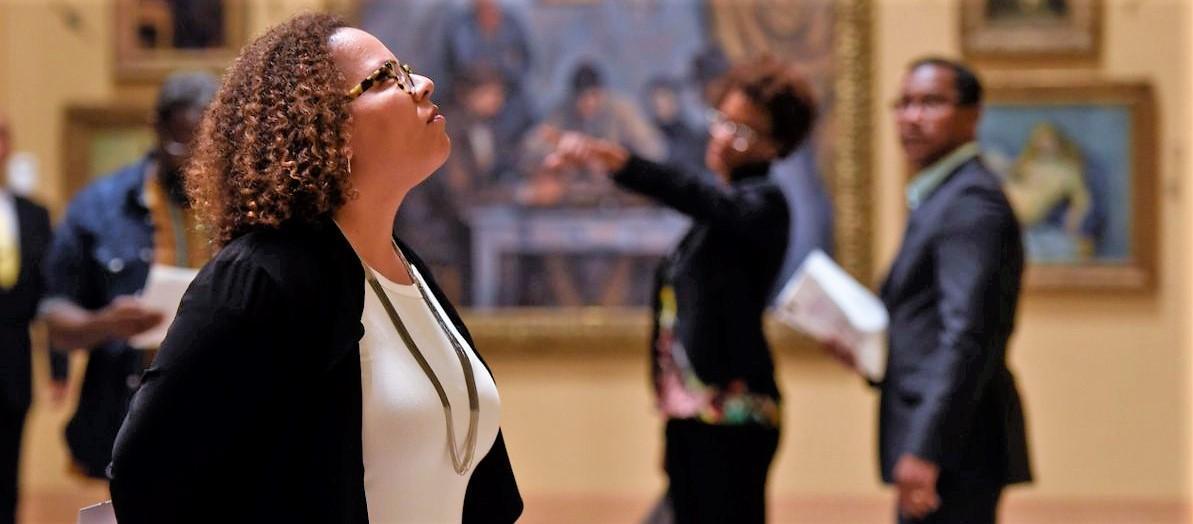ABOUT THE BARNES FOUNDATION - The Barnes Foundation (barnesfoundation.org) was established by Dr. Albert C. Barnes in 1922 to “promote the advancement of education and the appreciation of the fine arts and horticulture.”
The Barnes Foundation: A Legacy in Art, Education, and Horticulture
The Barnes Foundation stands as a unique cultural and educational institution, renowned not only for its extraordinary art collection but also for its commitment to horticulture and its distinctive approach to education. Founded in 1922 by Dr. Albert C. Barnes, the Foundation has a rich history, a world-class collection, and a mission that continues to resonate today.
The Art Collection: A Post-Impressionist and Early Modern Treasure Trove:
At the heart of the Barnes Foundation is its unparalleled collection of post-impressionist and early modern paintings. Dr. Albert C. Barnes, a pharmaceutical entrepreneur and avid art collector, amassed a collection that includes masterpieces by:
- Pierre-Auguste Renoir: The Barnes holds more Renoir paintings than any other collection in the world.
- Paul Cézanne: A significant number of Cézanne's works, showcasing his revolutionary approach to form and composition.
- Henri Matisse: A strong representation of Matisse's vibrant and expressive paintings.
- Pablo Picasso: Key works from Picasso's early periods.
- Other Masters: The collection also includes works by Henri Rousseau, Amedeo Modigliani, Chaim Soutine, and Giorgio de Chirico.
Beyond European modernism, the Barnes boasts significant holdings of:
- African Sculpture: Important examples of masks, figures, and other objects from various African cultures.
- Native American Art: Ceramics, jewelry, and textiles representing the artistry of Indigenous peoples of North America.
- American Paintings and Decorative Arts: Including furniture, metalwork, and Pennsylvania German art.
- Antiquities: Objects from ancient Greece, Rome, Egypt, and Asia.
The Unique Ensemble Display: Dr. Barnes arranged his collection in "ensembles," groupings of artworks from different periods, cultures, and mediums, designed to highlight visual relationships and encourage close looking. This unconventional approach, while sometimes controversial, is a defining feature of the Barnes experience.
The Barnes Arboretum: A Living Collection:
The Barnes Foundation's commitment to beauty extends beyond the walls of its Philadelphia museum. The Barnes Arboretum, located on a separate campus in Merion, Pennsylvania, is a 12-acre horticultural haven.
- History: Founded in the 1880s by Joseph Lapsley Wilson and significantly expanded by Mrs. Laura L. Barnes, the Arboretum boasts a diverse and rare collection.
- Plant Collections: Over 2,000 varieties of trees and woody plants, including notable specimens like a fern-leaf beech, a dove tree, a monkey-puzzle tree, and a redwood. The Arboretum also features extensive collections of lilacs, peonies, Stewartias, and magnolias.
The Horticulture School: Cultivating Knowledge:
Since 1940, the Barnes Arboretum has been home to the Horticulture School, offering a rigorous three-year certificate program.
- Comprehensive Curriculum: The program covers botanical sciences, horticulture, garden aesthetics, and design, providing students with a deep understanding of plants and their cultivation.
- Hands-on Learning: Students gain practical experience working in the Arboretum's diverse collections.
Education and Public Programs:
Education is one of the pillars of the foundation.
- Art and Aesthetics Programs: The Barnes offers a wide range of programs, both at its Philadelphia campus and online, designed to engage diverse audiences with art and horticulture. These programs emphasize close looking, critical thinking, and interdisciplinary learning.
- Community Engagement: The Barnes is committed to reaching out to the Philadelphia community through programs and partnerships.
The Barnes Foundation is a multifaceted institution that embodies Dr. Albert C. Barnes's vision of art and education as transformative forces. Its extraordinary art collection, its unique ensemble displays, its beautiful arboretum, and its commitment to education make it a cultural treasure, not just for Philadelphia, but for the world. The Barnes continues to evolve, finding new ways to engage audiences and fulfill its mission of promoting the appreciation of art and horticulture.
Share This Article on Social Media

